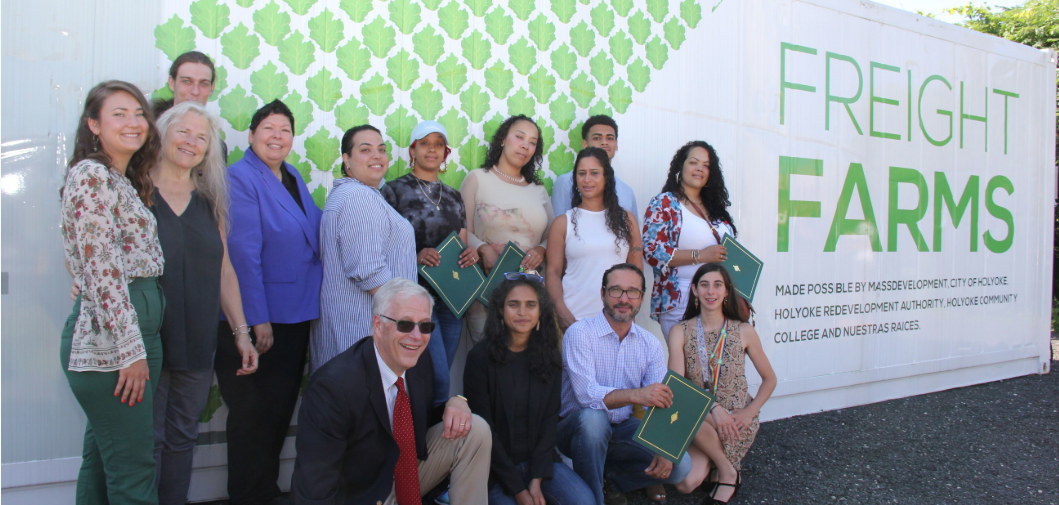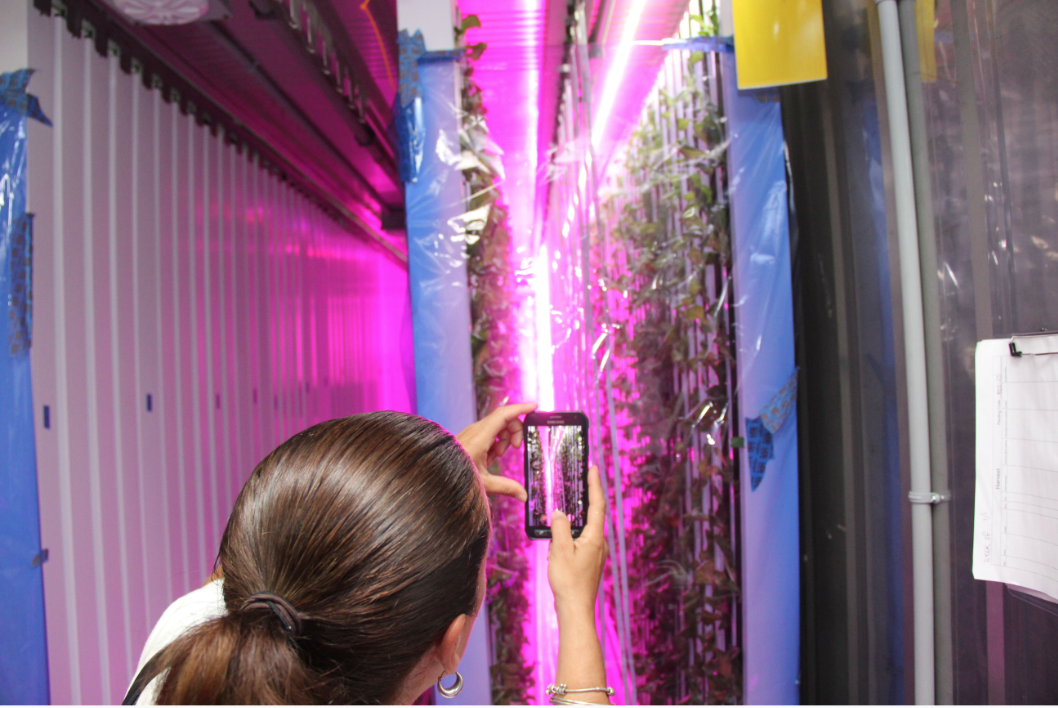
On June 27, 2019, Holyoke Community College celebrated the graduation of 12 apprentices from its Freight Farms workforce training program, a new apprenticeship-based opportunity to learn the art and practice of cutting-edge hydroponics based in a facility close to the MGHPCC.
Training takes place in a pair of refurbished shipping containers "Freight Farms" located on Race Street, in the heart of Holyoke. The re-purposed containers are used to grow leafy greens and herbs without the use of soil. Each of the container farms can hold 256 grow towers with a capacity of 10-12 plants each, and are able to grow as much produce in a year as an acre of farmland.

The soil-free facilities use water, mineral nutrients and LED lights for growing leafy greens like lettuce - image courtesy Holyoke Community College.